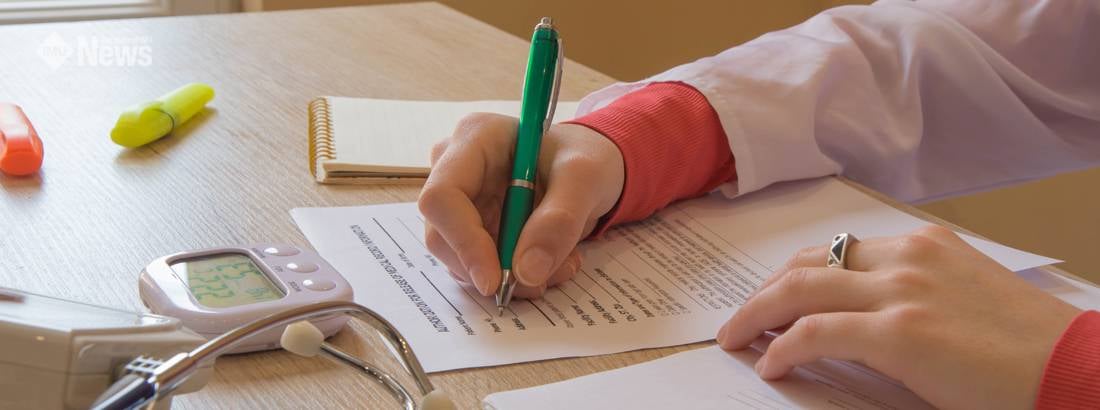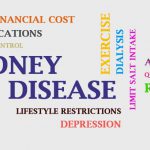Every decade brings new health challenges, and regular health screenings can help to detect problems early. Dr Muralitharan Ganesalingam, Head of Department, Obstetrics and Gynaecology, School of Medicine, International Medical University (IMU) and Consultant Obstetrician and Gynaecologist at IMU Healthcare, shares some advice for women on being proactive about your health.
Most people approach health screenings with reluctance. After all, it is never anybody’s idea of a fun time! In fact, many people take every opportunity to postpone or avoid them completely, with thoughts like these:
I’d rather not know. Better to just live my life.
What’s the point? It’s just a waste of time and money.
It’s so inconvenient. I would rather be doing something else.
Do these sentiments sound familiar? While it is only natural to feel this way, especially when you consider how busy life can be with work and family responsibilities, this type of thinking can be detrimental to a person’s long-term health. As women – especially mothers – are more likely to put others’ needs above their own, it is important that more women learn to prioritise and be pro-active about their health.
Here, Dr Muralitharan Ganesalingam, Head of Department, Obstetrics and Gynaecology, School of Medicine, International Medical University (IMU) and Consultant Obstetrician and Gynaecologist at IMU Healthcare, sheds some light on common misconceptions, with some practical advice on health screenings and when to begin.

I feel fine; why should I go for a health screening?
“The goal of screening tests is to detect changes in the body before they become unmanageable. In this way, you have the chance to modify your lifestyle and steer away from a particular illness,” explained Dr Murali.
In a nutshell, this means you should go for health screenings while you are healthy!
Fine. So when should I start going for health screenings?
Our bodies go through a natural aging process, and the goal is to age in a healthy manner. Generally, women between 19-24 years of age are considered to be at the peak of health. Thereafter, from the age of 25, fat begins to accumulate, especially in the hips, thighs and abdomen, while muscle mass deteriorates. From the age of 35, bone mass depletes at a rate of 0.5-1% per year, he said.
While everybody is different, these are natural changes, and Dr Murali advises annual screening from early adulthood, such as when you start working, and twice a year after the age of 45.
There are so many different types of tests!
Which screening tests should I prioritise?
Non-communicable diseases like diabetes, hypertension (high blood pressure) and high cholesterol have been on the rise for years, so Dr Murali suggests that annual health screenings for all healthy adults should begin with:
Blood pressure to check for hypertension.
This disease, known as the silent killer as it progresses without noticeable symptoms, affects 3 in 10 Malaysians, approximately 6.4 million people and increase the risk of stroke and heart attack.
Blood count to detect conditions like anaemia.
On average, anaemia affects 3 in 10 women aged 15-49 years and can cause complications during pregnancy such as miscarriage and premature birth
Blood glucose test to check for diabetes.
Approximately 1 in 5 adults have diabetes, equivalent to 3.9 million adults.
Body Mass Index (BMI) to monitor weight gain and help prevent obesity.
National statistics show that 1 in 2 adults are overweight or obese, and 1 in 2 have abdominal obesity, of which women accounted for 54.7% and 64.8% respectively.
Lipids test to check for elevated levels of cholesterol, which can lead to heart disease.
Around 4 in 10 Malaysians, approximately 8 million people, have raised cholesterol levels, with women being more likely to have higher levels than men. In spite of this, 1 in 4 people are unaware they have high cholesterol.
Kidney function and liver profile
Chronic kidney disease affects 1 in 7 Malaysians, and diabetes is a significant risk factor.
As you age, Dr Murali also recommends annual eye checks, hearing tests and dental check-ups.
What about tests specifically for women?
Some screening tests are particularly important for women, namely Pap smears to check for cervical cancer, breast examinations to check for breast cancer and bone mineral density scans to detect osteoporosis.
Cervical cancer
“One of the specific diseases we look for as women grow older is cervical cancer. Historically, cervical cancer used to be one of the dominant cancers in women, with 500,000 new cases a year worldwide and 250,000 deaths. But because we have an efficient screening programme through the use of Pap smears, we have been able to reduce the incidence of cervical cancer substantially. It is the most significant advancement in the control of cancer, hence annual screening for cervical cancer is something I emphatically encourage,” said Dr Murali.
Pap smears involves taking a small tissue sample from the cervix, which will be checked for abnormalities or changes that could be a sign of cervical cancer. However, despite its efficacy as a screening test, a recent study found that only 45% of Malaysian women have ever gone for a Pap smear, he said.
Breast cancer
Breast cancer remains the most common cancer among Malaysian women. By recent estimates, 1 in 20 women will develop breast cancer and at least 9 individuals die of breast cancer every day. Despite these statistics, only 1 in 2 women aged 18 and above do not practice breast self-examination and only 1 in 4 women above 40 years have ever had a mammogram.
As breast cancer is highly treatable when detected in its early stages, he said, it is essential for all women to be disciplined about performing their own breast examinations, with an annual check by a doctor, who will advise if a mammogram is needed.
Osteoporosis
Finally, as bone mineral density decreases with age and the risk of fractures increases, postmenopausal women 50 years and older should be screened. Among older persons aged 65 years and older, screening should be done at least once a year, according to Malaysian guidelines.
What do doctors mean when they say ‘high-risk’?
There are certain things such as family history and lifestyle factors that increase your risk for developing certain health problems, explained Dr Murali. Factors that may warrant more frequent screening are increasing age, family history, high levels of stress and lifestyle habits like smoking, alcohol consumption and having multiple sexual partners. He also cautioned that the impact of lifestyle habits would only show later in life and that chronic stress, be it from work, family or financial situations, are a great threat to health.
Final words of advice
Noting that more people are taking health screenings seriously, this should be done with care as needless testing can lead to anxiety. For example, yearly mammograms may not be necessary as up to 50% may reveal something abnormal but not all of these turn out to be cancerous. Therefore, Dr Murali cautions that screening tests only make sense if they are required and can lead to improved health.
At the end of the day, it is important for you to speak to your regular doctor about any health concerns and discuss what health screenings may be beneficial for you, based on your age, lifestyle and family history.
29 Nov
29 Nov
29 Nov
29 Nov
29 Nov
30 Nov
30 Nov
Ova.galencentre.org Online
Daily Straits Online
The Malay Tribune Online
The Iskandarian Online
Intimes Online
Sinaran Wanita Online
Ramarama Online









